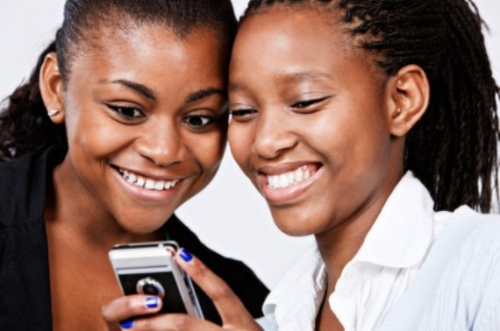
If there’s any country that has experienced the digital revolution in its entirety, it is Nigeria. The GSM boom from 2001 changed the face of technology. But it didn’t end there; it birthed a new culture for the Nigerian people – especially the teens, creating funny habits, language and traditions. Perhaps it might be imperative to give insight on some of them.
Multiple lines, multiple phones: This is always blamed on poor telecom services. But it has more to do with new styles and tastes that technology has ushered in. 63 % of Nigerian phone users have more than one line. Little wonder the porting phenomenon has not been well received. The use of multiple lines has also made dual-sim phones a hit in the Nigerian market.
Flashing: Nigerians, no matter how wealthy, are ever on the look-out for cheaper ways to do things. This has ushered in a culture widely known in Nigeria as flashing. Flashing is the art of beeping a receiver with the intention of getting him to call back. Some users have so mastered the use of flashing, that it is impossible for any receiver to pick their calls even for a split second. Depending on the situation, a flash could mean “call me back, I don’t have credit,” “wake up, it’s time to go,” “have you checked the beans on the fire,” “I just wanted to say hi,” etc.
Mr. Fix it: Nearly every Nigerian has become a self-appointed engineer. If a Nigerian’s phone freezes, he takes out the battery and reboots. If it falls into water, he dries it out under the sun. If the speaker is faulty, he turns it to the back. If the keypad is faulty, he uses cellotape.
Show-offs and trend-setters: For many mobile users in Nigeria, the slogan is, If it’s new in the mobile market, then we’ve got it! Forget third world, we spend just as much on mobile technology as the so-called developed economies. And if we’ve got it, we’ll show it off; to our friends, to our enemies, to strangers and to everyone else. It doesn’t matter whether the tablet is more expensive than the clothes on our back, or we can’t afford to load that expensive phone with credit, we’d set the trend and get the gadget.
How we pick foreign calls: The typical Nigerian has two standard behaviours when he is about to receive an international call from a number he doesn’t recognize. Firstly, he lets the person on the other end of the line speak first. He lets the person introduce himself to be sure that he isn’t about to be conned. Then, once he’s sure that the coast is clear, he changes his accent immediately to suit the caller’s.

